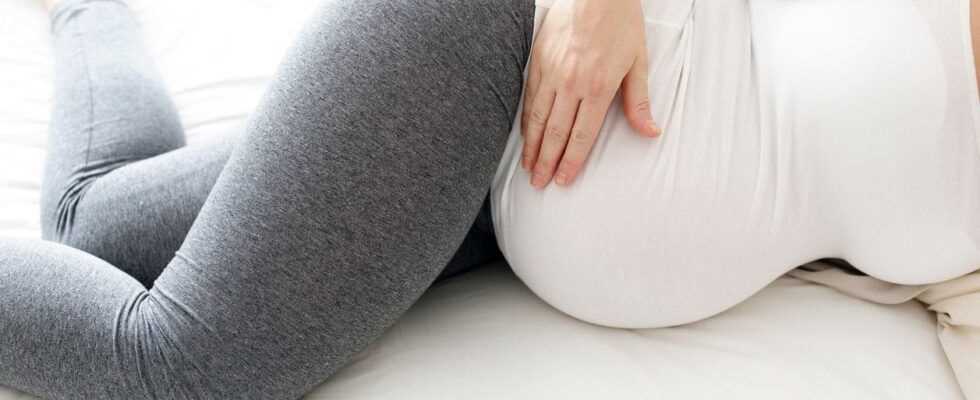A quick update on the impact of Covid-19 on pregnant women, anyone? Pregnant women more at risk, the link between viruses and premature births, the transmission of antibodies from mother to baby and the vaccine for pregnant women, we explain everything to you.
Our heads are all full of diverse and varied information, sometimes a little blurry, on Covid-19. It is a bit complicated to navigate and see clearly. However, some of this information is crucial and must be known and understood, especially on the impact of the virus on pregnant women. Doctors’ opinions are rather divergent, but many studies provide assurance on certain points such as vaccination, severe forms, premature births and the transmission of antibodies.
We take stock of all the important and reliable data on pregnant women and the consequences for babies. In addition to this, you need to know more about it.
Are pregnant women more at risk?
Unfortunately, pregnant women are arguably more vulnerable to the virus. According to a study of Centers for Disease Control and Prevention (CDC) -principal American health agency- out of 450,000 women infected with the virus, pregnant women are three times more likely to develop severe forms and to go to intensive care (10.5 cases in 1,000 compared to 3.9 ), as well as requiring respiratory assistance (2.9 cases out of 1000 compared to 1.1). It is specified that the comparisons are made on women of similar ages.
Indeed, the risks are induced by the physiological changes due to pregnancy, such as heart rate, reduced lung capacity, fatigue … It should not be forgotten that a pregnant woman carries a human being who draws on her resources and nutrients. .
It would even seem that the risks are accentuated during the third trimester, according to Doctor Joëlle Belaisch-Allart, head of the Obstetrics Gynecology department at the Quatre Villes Hospital of Saint-Cloud in Hauts-de-Seine and president of the National College. French gynecologists and obstetricians (CNGOF). Yes, pregnancy weakens, and you should never neglect the slightest symptom, whatever it may be.
Premature births
It appears that the coronavirus is increasing premature births. According to data from a study of 4,005 British and American women who are positive or suspected of having the virus. Imperial College of London, 12% of these women gave birth prematurely, against 16.2% for women whose contamination is confirmed. Unfortunately, the study’s lead author, Christoph Lees, says there is no known direct link between the virus and this rate of prematurity.
Indeed, these premature births could in fact be rather related to the anticipation of the doctors as for the childbirth. It would therefore be them who would speed up the delivery. According to doctor Joëlle Belaisch-Allart, “In women with Covid, it is true that there is an increase in prematurity. This can be spontaneous, because the fever can give contractions and start childbirth, or caused because in front of women with respiratory problems we had to start childbirth or even have a cesarean section. On the other hand, general prematurity has rather decreased because pregnant women remain more at rest at home thanks to teleworking.”.
In addition, the virus does cause a higher rate of premature babies, but without a direct link. We reassure you, it seems that the virus does not play a role in miscarriages or stillbirths.
Transmission of antibodies from mother to baby
A fairly complex question that has turned the heads of health professionals. It does appear that a mother can transmit antibodies to a baby if she has contracted the virus. Of course, this depends on two criteria:
- The time between infection and childbirth
- The severity of the infection
According to a study published by Cell, the transmission of antibodies would be effective if the mother contracted Covid-19 in the second trimester. A study carried out by the Pennsylvania Hospital in Philadelphia on maternal blood and the umbilical cord provides details. For this study, 1,471 mothers and therefore newborns were solicited. It seems that 83 mothers made antibodies, and were spotted in childbirth. Of these 83 newborns, doctors have detected antibodies in the umbilical cord in 72 of them.
It is recalled that the transmission of the virus from mother to child is completely possible. Although this is rare, it has happened before. According to a study published in Nature Communications in July 2020, intrauterine contamination exists. We reassure you, the study is based on an isolated case, even if cases of stillborn babies of positive mothers have been identified. Transmission occurs in severe maternal infections and in late pregnancy.
The vaccine for pregnant women
Even if the doctors initially wanted to avoid vaccinating pregnant women for lack of valid data, the High Authority of Health (HAS) gave a new opinion on March 2: “Despite the lack of sufficient data during pregnancy, the administration of Covid-19 vaccines to pregnant women is not contraindicated. This vaccination should be considered if the potential benefits outweigh the risks to the mother and fetus. In particular, pregnant women over 35 years of age or those with other comorbidities or likely to be in contact with infected people […] may be offered vaccination”.
Read also :
Covid-19: if you are pregnant or breastfeeding, can you get vaccinated?
Covid-19: new in the vaccination of pregnant women
Midwives are now authorized to vaccinate their patients if they deem it necessary for the health of the mother and child. Doctor Joëlle Belaisch-Allart still warns about the AstraZeneca vaccine, which can cause fever, which can in turn trigger contractions and therefore premature delivery.
Here we are, we have tried to simplify and bring together the information we know as much as possible. In short, if you are pregnant, you have to be careful and be very careful. There are no “mild” symptoms!
